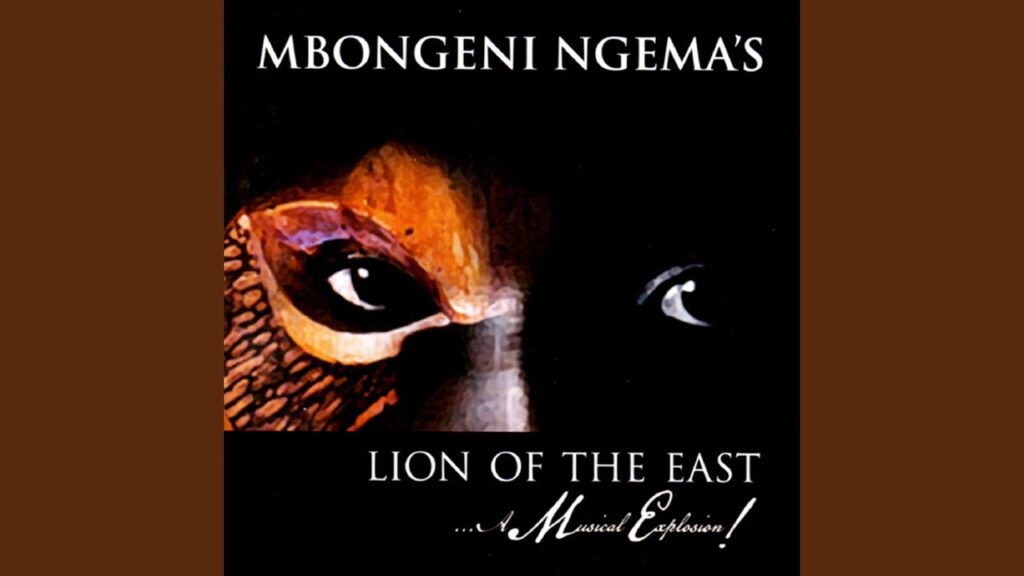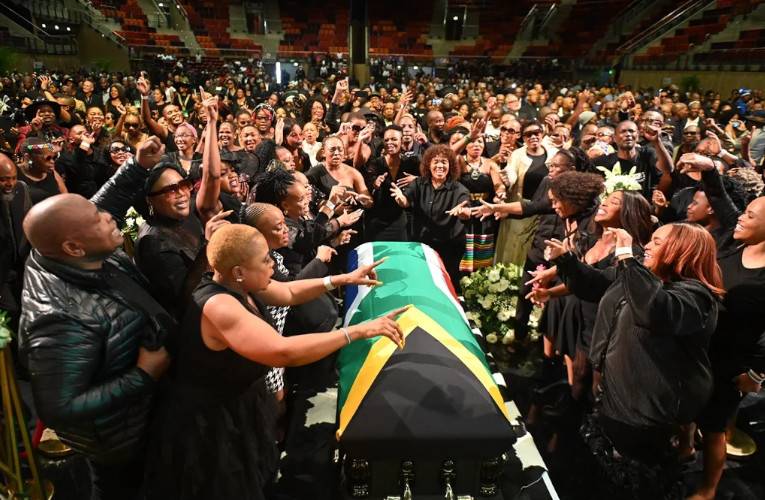Tribute to Mbongeni Ngema: The demise of an arts colossus
Calls since have emerged to name the Durban Playhouse after Ngema as well as naming other institutions of arts such as Soweto Theatre after the late Gibson Kente and the Market Theatre after playwright John Kani.
By Edward Tsumele, CITYLIFE/ARTS Editor

Well, we all know that the December period is just horrible when it comes to deaths that come in many forms and shapes in the country. Some deaths are as a result of the endemic violence that seems to be stalking the nation throughout the year, and increasingly through the December holidays.
The other form of deaths that happen in December are as a result of road accidents. This, we know from past statistics and trends. But nobody, especially in the creative sector, even in their wildest imagination, ever thought that the country was going to lose one of the most prolific and talented artists, playwright and musician Mbongeni Ngema, through a road accident.
But that is what happened to the legend. He died on his way to Durban from the Eastern Cape, where he had attended a funeral of one of his employees at Committed Artists, an outfit through which Ngema produced some of the most memorable stage, music and screen productions, such as Sarafina, Gert Sibande: Lion of The East, The Zulu and Asinamali, among others. These productions, in some of which he played several roles, such as writer, actor, director and producer, will remain etched in the minds of many for they made Ngema to stand out in the country’s arts sector as a hugely talented artist and visionary.

There simply will not be another Ngema. His shows are notably and unapologetically Afrocentric and carry artistic merit, cultural relevance and socio-political impetus. This made Ngema an important figure in the country’s politics, history and culture. Ngema, whose shows contributed quite a lot to the success and profiles of such theatre institutions as the Market Theatre, both during apartheid and after freedom, were always well researched and told stories of our history and a past that in some cases, is dark.
I will not here go further than this, as what Ngema’s impactful productions are a matter of public record. Howeve. Sarafina for example was nominated for a Tony Award, probably the most prestigious ceremony for theatre globally. It is however,perhaps important to say something about Ngema and the past few years in relation to where his career was.
This, I admit, here, is an uncomfortable area to touch on for some in arts circles. I will however say it as a matter of public record. Many will admit, at least those that are honest to themselves, that we needed a Ngema again on stages of theatre venues to inject a new energy in a theatre scene that seems to be caught in a logjam when it comes to plays that have impact on society at large. These days, it is hard to attend theatre and get to witness plays that will touch your emotions and stimulate your intellectual curiosity beyond entertainment.
And here I am not suggesting that you never get entertained at theatre. It is just that entertainment must also be combined with theatre that also makes you think and reflect deeply about where we are as a society, where we come from and where we are headed to. I am not sure if the shows that currently dominate stages of our theatres take us there right now.
Ngema’s shows, did quite a lot to reflect on our past and therefore managed to make theatre audiences to reflect on where they are in relation to that past, and possibly imagine the future. This is why Ngema’s productions, always put bums on the seats, whether at State Theatre, Market Theatre, Joburg Theatre, Arts Cape, or Durban Playhouse. His productions always connected with audiences. Therefore, many in recent years, have missed Ngema on stage, and unfortunately will never again see the legend on stage, even though his productions that he managed to put on stage, screen and recorded as music, will continue to touch many souls globally.
The question that arises then is why was one of the most prolific and insightful playwrights not on stage in the past few years? This will of course remain a question that will haunt the theatre fraternity for a long time. Answers will remain elusive and even speculative.
But at the funeral of his long time publicist, Otto Moloto, held at the Market Theatre in Johannesburg, two years ago, who coincidentally also died in December, through natural death, Ngema gave a hint of why he was not on the country’s main stages. He seemed frustrated.
Ngema complained that it was wrong for certain theatres to cancel certain individuals. He was visibly angry and his mood was that of disappointment. He never mentioned the theatres by name.
However it must also be remembered that Ngema said this in the context of allegations of his stray hands that found their way into the skirts of certain people where they were not welcome. I am not going to go into the details here, as those allegations are publicly known. However, certain lobby groups appear to have made life a bit uncomfortable for Ngema to put up shows on stage due to this small matter of his alleged straying hands.

That is a pity because clearly, the theatre stages right now need a Ngema, because just like I said earlier, his productions were insightful and unapologetically Afrocentric. His manner of story-telling followed the style of his mentor, the late Gibson Kente, where Ngema was trained. It was at Bra Gib’s academy where many of today’s leading black entertainers –actors, musicians and dancers were also trained. Ngema seemed to have followed Bra Gib’s tradition of giving an opportunity to several other young black artists in his productions.
These include such names as Somizi Mhlongo, Babe Cele and Leleti Khumalo, to name but just a few. In other words, Ngema’s footprint on the country’s arts’ scene is everywhere. That cannot be taken away from Madlokovu. He may have made mistakes as a person, but his artistic contribution will remain visible. Hard to erase even. This is why the accolades followed his demise on that fateful December day, when a car in which he was a passenger, collided with a lorry, claiming his life at a relatively young age of 68 were showered on him from all quarters. With that fateful accident, the country lost an art colossus, whose artistic footprints are till this day, visible around the country and other prestigious spaces such as Broadway and Hollywood.
Ngema off stage was an interesting character to hang around with. No airs of importance or hints of claiming to be different from the rest, he was a good host to guests at his house. l
For some of us who over the years have had the privilege to be invited on several oacassions to Ngema’s house in Gallo Manor, Sandton, where it was not unusual for drinks to flow seemingly endlessly, will miss those occasions during which a relaxed, off stage Ngema, would regale us with stories and fun jokes. This is as we enjoyed food and drink, thanks to Ngema’ hospitality and generosity.
However it is his work that many will remember him for, and in a way the country awes him a date that they will in the passing of time, will have to pay. Already some in the industry are actually calling for the authorities to name the Durban Playhouse, where Mbongeni played several roles over the years, including being in charge of the theatre’s dance and music programme.
One prominent arts person to make this bold call is none other than producer Duma Ndlovu, who also feels that the Market Theatre should similarly honour prominent playwright John Kani by naming the iconic Market Theatre in Newtown, Johannesburg, The John Kani Theatre. Such a call makes since Kani has played several roles at that theatre since its inception, such as actor on its stages in some of the most important plays ever put up there, director and managing trustee. Currently though its biggest venue is named after Kani, but other feel that the whole institution should be named after him as a way of honouring artists when they are still alive.
IN the meantime, it will be interesting to see4 whether the Council of The Durban Playhouse will heed the call to name the place after Ngema. IT can therefore not be taken for granted that Ngema will get that honour, as some will remember not long ago, when similar calls were made to name The Soweto Theatre The Gibson Kente Theatre. Right now, the call seems to be either muted or feeding to a point where it is hard to here its lament.
.Ngema’s funeral service was held two weeks ago at the Durban International Convention Centre (Durban ICC). President Cyril Ramaphosa bestowed official provincial funeral status on the playwright, category 2, meaning that the government covered the funeral costs.










